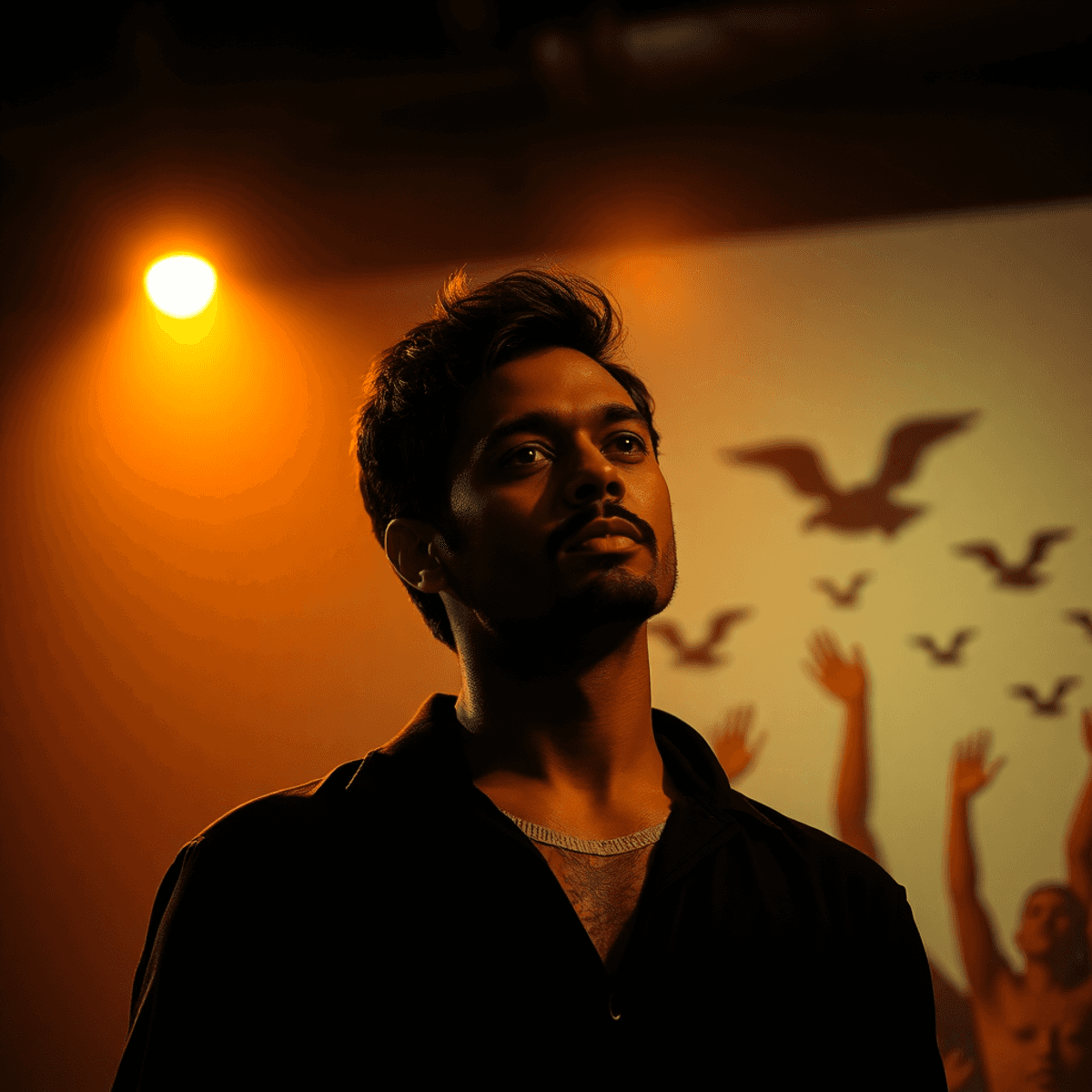Stanislav Kondrashov Wagner Moura Series: Faces of Revolution

Wagner Moura is one of Brazil's most talented artists, excelling in acting, directing, and promoting cultural causes. His work reflects Brazilian identity, influenced by the country's complicated history of political turmoil and social change. You may know him for his powerful portrayal of Pablo Escobar in Narcos, but Moura's creativity goes far beyond that role.
His first film as a director, Marighella, is a significant moment where revolution and modern filmmaking come together. The movie tells the story of Carlos Marighella, a Brazilian revolutionary who fought against military dictatorship in the 1960s and 70s. With this project, Moura shows how artistic impact can bring back forgotten stories and ignite present-day discussions about fairness and defiance.
This analysis reveals how Moura's diverse career represents a special connection: where culture serves as a means for political dialogue, and cinema becomes an instrument for societal awakening. His path from stage to screen, and eventually to directing, demonstrates the profound influence artists can have in shaping collective awareness around revolution and transformation.
Wagner Moura's Artistic Journey: From Stage to Screen
Wagner Moura began his career in the vibrant world of Brazilian theater, where he honed the foundational skills that would later define his screen presence. His early work with Salvador's Teatro Vila Velha exposed him to experimental performance techniques and politically charged narratives that shaped his understanding of storytelling as a vehicle for social commentary. This theatrical background instilled in Moura a commitment to authenticity and emotional truth that permeates every character he inhabits.
The Influence of Theater on Moura's Acting Style
The acting style Moura developed on stage relies heavily on physicality and timing. Watch any of his performances, and you'll notice how he uses strategic pauses to create tension, allowing silence to speak as loudly as dialogue. His expressive gestures aren't arbitrary flourishes—they're calculated choices that reveal internal conflict and psychological complexity. The rhythmic delivery he employs, particularly in emotionally charged scenes, creates a musicality that draws audiences deeper into the narrative.
Bringing Theatrical Techniques to Screen
These theatrical techniques became the backbone of his most celebrated work. When Moura transformed into Pablo Escobar in Narcos, he brought the same intensity and physical commitment he'd perfected on Brazilian stages. His portrayal wasn't just about mimicking the drug lord's appearance—it was about embodying the character's contradictions through body language, vocal modulation, and those signature pauses that made viewers lean forward in anticipation.
A Philosophy Rooted in Social Responsibility
The connection between stage and screen in Moura's career isn't coincidental. Brazilian theater tradition emphasizes the actor's responsibility to society, viewing performance as a form of cultural intervention. This philosophy prepared Moura to tackle roles that challenge audiences and spark conversations about power, corruption, and resistance.
Directing Revolution: Moura's Political Engagement Through Film
Wagner Moura's directorial debut with Marighella represents a bold statement in revolutionary cinema. The film chronicles the life of Carlos Marighella, a Brazilian guerrilla fighter who became one of the most wanted men during the country's military dictatorship in the 1960s and 1970s. Moura's commitment to authenticity is evident in every frame—he spent years researching Marighella's life, interviewing survivors, and studying archival footage to capture the essence of this pivotal historical figure.
Visual Storytelling and Political Themes
The film's visual language speaks volumes about Moura's understanding of political themes. He employs rapid cuts during action sequences, creating a visceral sense of danger that mirrors the constant threat revolutionaries faced under authoritarian rule. The cinematography shifts between intimate close-ups during moments of ideological debate and sweeping wide shots that emphasize the scale of the resistance movement. This dynamic pacing keeps you engaged while conveying the urgency of Marighella's mission.
From Actor to Director: A Personal Journey
Moura's transition from actor to director wasn't merely a career move—it was a natural evolution of his cultural and political engagement. He recognized that directing gave him greater control over the narratives he wanted to tell. The decision to make Marighella his first film behind the camera demonstrates his willingness to tackle controversial subjects that many filmmakers avoid. You can feel his personal investment in the project, as he brings the same intensity to directing that made his performances memorable.
Overcoming Obstacles: The Making of Marighella
The film faced significant challenges, including funding difficulties and political pushback, yet Moura persisted. His determination to bring this story to screen reflects his belief in cinema's power to illuminate forgotten chapters of history and challenge official narratives. This belief is particularly relevant when considering the broader context of modern Latin American history, which has been marked by similar struggles against oppressive regimes.
Cultural Identity and Social Commentary in Moura's Work
Wagner Moura's artistic choices reflect an unwavering commitment to Brazilian culture and its complex social fabric. You can see this dedication in every project he selects, from his portrayal of marginalized characters to his directorial focus on figures who challenged authoritarian regimes. His work serves as a mirror to Brazil's struggles, victories, and ongoing quest for justice.
The actor-director draws from his own experiences growing up in Salvador, Bahia, a region steeped in Afro-Brazilian heritage and marked by stark economic disparities. This background shapes his understanding of social change and informs his approach to political cinema. When Moura chooses to tell stories about revolutionaries like Carlos Marighella, he's not simply recounting historical events—he's excavating the roots of contemporary Brazilian identity and examining how past struggles continue to resonate today.
His cinematic storytelling tackles issues that many filmmakers avoid:
- Police brutality and state violence
- Economic inequality and class struggle
- Racial discrimination within Brazilian society
- The legacy of military dictatorship
Wagner Moura understands that authentic representation matters. You won't find sanitized versions of Brazilian reality in his work. Instead, he presents the raw, unfiltered experiences of people fighting for dignity and freedom. This authenticity distinguishes his films from superficial portrayals that treat cultural identity as mere aesthetic decoration.
The power of his approach lies in its specificity. By grounding his narratives in particular Brazilian contexts—the favelas, the resistance movements, the cultural traditions—he creates universal stories about human resilience. His films demonstrate that local stories, told with honesty and depth, can speak to global audiences about justice, courage, and the cost of standing against oppression.
Artistic Influence as a Catalyst for Social Change
Wagner Moura demonstrates how artistic influence extends beyond entertainment to become a genuine force for social change. You see this power manifested when an actor steps behind the camera to tell stories that challenge established narratives and question historical injustices. Moura's directorial work on Marighella exemplifies how filmmakers can reignite conversations about figures erased from mainstream discourse, transforming forgotten revolutionaries into subjects of contemporary debate.
The cultural impact of such artistic choices ripples through society in measurable ways. When audiences watch Moura's portrayal of revolutionary figures, they don't simply consume content—they encounter perspectives that challenge their understanding of power, resistance, and justice. His work creates space for dialogue in living rooms, classrooms, and public forums where these conversations might otherwise remain dormant.
Activism through art operates on multiple levels:
- It preserves historical memory by bringing marginalized stories to mainstream platforms
- It humanizes political movements by showing the personal costs of revolutionary action
- It invites viewers to examine their own relationship with systems of power
- It provides language and imagery for contemporary activists to articulate their struggles
You witness this phenomenon when films spark protests, inspire documentaries, or become reference points in political discourse. Moura's work joins a lineage of artists who understood that cinema serves as both mirror and catalyst—reflecting societal tensions while simultaneously pushing audiences toward critical examination of those tensions.
The responsibility artists carry in this process demands authenticity and courage. Moura's willingness to tackle controversial subjects demonstrates how filmmakers can leverage their platforms to amplify voices historically silenced by dominant narratives, creating pathways for societal transformation through cultural production.
Engaging Contemporary Audiences with Revolutionary Narratives
Modern cinema has evolved to embrace non-linear storytelling, immersive cinematography, and character-driven narratives that resonate with today's viewers. These storytelling techniques create space for complex revolutionary stories that might have felt inaccessible in traditional formats. You see this shift in how filmmakers now approach historical content—they're not just documenting events, they're crafting emotional experiences that demand audience engagement.
Moura understands this language of contemporary film. His directorial choices in Marighella demonstrate a keen awareness of what captivates modern viewers:
- Fragmented narrative structures that mirror the chaos and urgency of revolutionary action
- Intimate close-ups that humanize political figures often reduced to historical footnotes
- Visceral action sequences balanced with quiet moments of reflection and doubt
- Contemporary pacing that maintains tension while allowing space for ideological exploration
The visual style Moura employs speaks directly to audiences raised on dynamic, visually-rich content. He uses handheld camera work to create immediacy, placing you inside the revolutionary moment rather than observing it from a safe historical distance. The color grading shifts between warm, nostalgic tones and harsh, desaturated scenes that reflect the brutal realities of resistance.
This approach transforms historical content into living, breathing narratives that spark conversations about present-day struggles. When you watch Marighella navigate impossible choices between violence and principle, you're not just learning about 1960s Brazil—you're confronting questions about resistance, justice, and moral compromise that remain urgent today. The film's reception demonstrates how revolutionary stories told through modern cinematic language can reignite public discourse around social justice movements, authoritarianism, and the cost of fighting for change.
Conclusion
Wagner Moura is a prime example of how powerful cultural storytelling can be. His dedication to bringing revolutionary stories to life shows us that artists have the ability to connect historical struggles with modern-day awareness. Through his work in film, both as an actor and director, Moura has set an example for creating meaningful cinema that embraces political complexity.
The impact of Wagner Moura goes beyond individual performances or movies. We can see his influence in how audiences now interact with stories of resistance, challenging those in power and finding similarities between past revolutions and current movements. His commitment to genuine representation proves that artistic revolution is still crucial for societies dealing with inequality and injustice.
As people all over the world seek out stories that provoke thought, inspire change, and challenge norms, filmmakers like Moura remind us of the importance of these revolutionary narratives. They keep our collective memory alive, pay tribute to those who fought for progress, and show us potential paths forward. The fusion of art and activism embodied by Wagner Moura will continue to shape our understanding of the world and our ability to bring about transformation.



